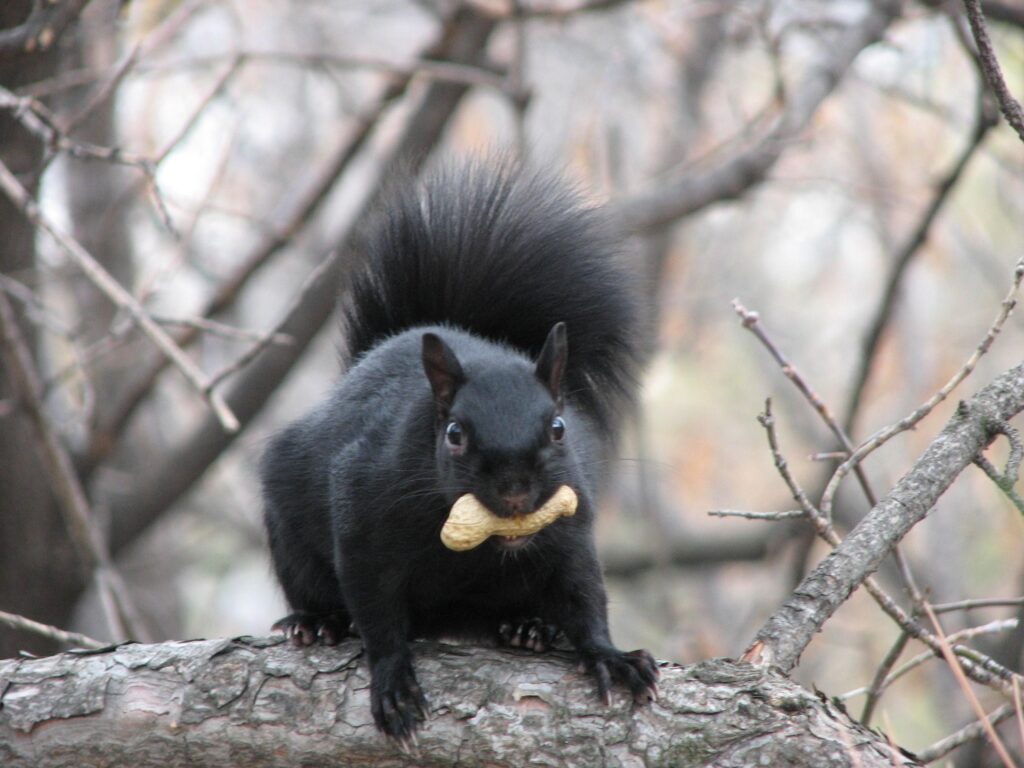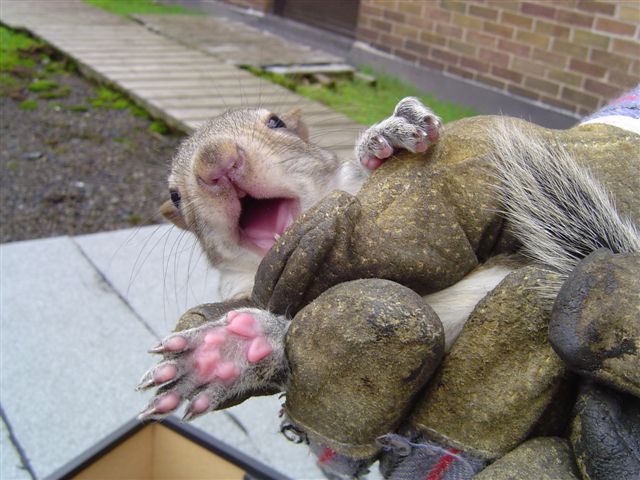People often see squirrels around their homes or in their neighbourhoods. They may start asking questions such as, “When do squirrels have babies?” or “Why do some squirrels have black coats?” or “Can I feed the squirrels in my backyard?” The answer to the last question is an unequivocal “no,” and there are several very good reasons why.
1. It Is Against the Law
Feeding wildlife of any kind, including squirrels, is illegal under the provincial law of Ontario. This includes feeding that takes place on private property as well as in parks and other public places. If you are caught feeding squirrels or other wildlife, you can be fined hundreds of dollars.
2. Squirrels Are Capable of Fending for Themselves
Squirrels are very adept at finding their own food and storing it for later. They are highly adaptable creatures, so living in an urban environment isn’t a hardship for them. You may consider it a kindness to feed the squirrels, but they don’t really need the assistance of humans to keep themselves fed. Furthermore, feeding squirrels can have unintended consequences for both you and the animals.
3. They May Lose Their Fear of Humans
It is natural for squirrels to fear potential predators, such as humans. This self-preservation instinct helps to keep them alive. However, squirrels that are fed may start to see humans as a source of food rather than a potential predator. Squirrels and other animals that see humans as a source of food can start to behave very aggressively towards humans, which can lead to conflict between the two species in which both people and animals may get hurt. Squirrels that lose their fear of humans may also be more likely to get hit by a car.

4. They Can Spread Disease
Squirrels can carry diseases such as typhus, ringworm, and tularemia. These illnesses are zoonotic, meaning that they can spread to humans through close contact with squirrels. Even if squirrels do not spread diseases to humans directly, they can carry parasites such as ticks, mites, or fleas that can carry Lyme disease or leptospirosis. These parasites can spread from contact with squirrels and infect you through their bites. Squirrels may be at risk of getting sick as well.
5. They Can Draw Predators
Coyotes and other predators feed on squirrels. Predators go where the game goes, so when the squirrels gather in your yard to be fed, the predators follow. If you live within the range of coyotes or mountain lions, they can pose a threat, especially if you have small children or pets. Though often reluctant to approach a full-grown human, these predators might see a dog, cat, or small child as more substantial prey than a squirrel. Though mountain lions are rare in southern Ontario, coyotes are known to live and thrive in urban areas.
6. Feeding Squirrels Can Disturb the Ecological Balance
Well-fed squirrels may reproduce more than is natural, causing an increase in the population. It may be more than their natural predators can keep in check. Squirrels may start competing with each other and other species for resources. Squirrels that are fed by humans may have an unfair advantage over other species, which may be less likely to survive.
7. The Food You Provide May Not Be Healthy
Most animals have specific nutritional needs. Even if squirrels seem to enjoy the food you feed them, it may not meet those needs. If squirrels are full from feeding, they may not make the effort to find the food they need to stay healthy.
What if You Find a Squirrel Nest in Richmond Hill?
Squirrels should not eat human food or make nests in human homes. Skedaddle Humane Wildlife Control removes squirrels from houses and relocates them outside. We then clear away nesting materials and decontaminate the area. Learn more about the services we offer in Richmond Hill.



